Iranian Daily Raises Concerns Over Rising Migrant Influx
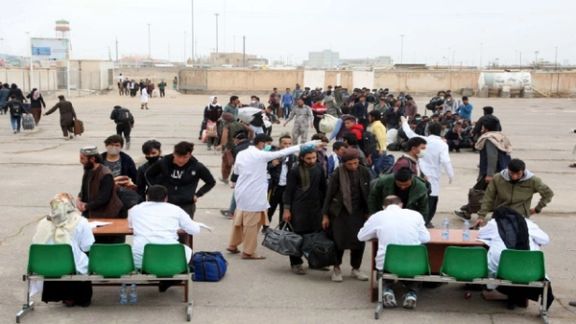
A conservative Iranian newspaper has issued a warning about potential security repercussions due to the increasing influx of Afghan and other migrants into Iran.

A conservative Iranian newspaper has issued a warning about potential security repercussions due to the increasing influx of Afghan and other migrants into Iran.
The editorial in Jomhuriye Eslami (Isalmic Republic) daily highlights the urgency for political leaders and intelligence officials to address the escalating issue of "foreign national" entering the country.
The term foreign nationals was used to describe those involved in the attack on the Shahcheragh shrine in Shiraz August 13, calling for the attention of political and security authorities, added the daily.
The editorial notes that while the primary perpetrator holds Tajik citizenship, other detainees have different nationalities, prompting reflection on the presence of foreign nationals in Iran and the mounting adverse effects in society. Afghans are the largest group of migrants arriving in Iran by thousands daily.
The article emphasized the need “to uphold legal frameworks and rigorous oversight concerning foreign nationals' presence.” Key considerations include robust monitoring to prevent criminal activities, which significantly impact national security, the daily noted.
Drawing insights from recent events, the article underscored several points. It questioned how foreign nationals conducted an attack exposing a lack of oversight that raises concerns about more serious future crimes. It also highlighted the risk of adversaries using foreign nationals to destabilize Iran.
Meanwhile, former chairman of Iran's national security and foreign policy committee, Heshmatollah Falahatpisheh, underscores the potential security challenge of Afghan migrants. With approximately 10,000 arriving daily, Falahatpisheh highlights potential systemic facilitation and the need for robust oversight.
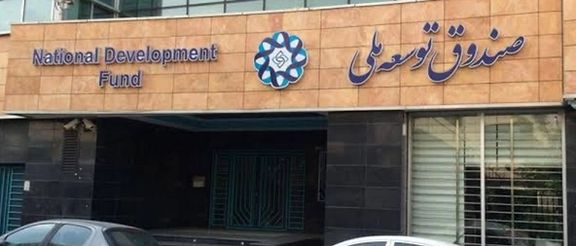
Intriguing figures released this week in Iran reveal that over the past decade the government has spent more than $100 billion from the national reserve fund.
Local media reported the disclosure by the Iranian parliament’s research center on Friday, illustrating that as stringent international sanctions struck Iran during 2011-2012, the administration of former president Mahmoud Ahmadinejad initiated withdrawals from the National Development Fund (NDF).
The NDF, designed to save up to 30 percent of oil revenues for future generations, saw withdrawals totaling $13.6 billion from 2010-2013, a period when global oil prices remained above $100 per barrel. Nonetheless, during Ahmadinejad's tenure, more funds were retained in the NDF than withdrawn.
The UN-imposed international sanctions, as well most US and EU economic sanctions ended in mid-2015 when Iran and the world powers concluded the Joint Comprehensive Plan of Actions (JCPOA) nuclear accord, curbing Iran’s nuclear program in exchange for removing most sanctions.
Despite this, withdrawals persisted throughout President Hassan Rouhani's two terms (2013-2021). In his initial presidential tenure, $30 billion was withdrawn. However, as former US President Donald Trump withdrew from the JCPOA and imposed crippling sanctions, Iran increasingly relied on its reserves, resulting in a negative cash flow in the NDF.
During Rouhani’s second term (2107-2021) the government withdrew $37 billion, to maintain fiscal stability. contravening the NDF charter that bars using it for day-to-day government operations. Such withdrawals required Supreme Leader Ali Khamenei's approval, who reluctantly endorsed the JCPOA but refused further nuclear concessions or negotiations over US demands.
In the third annual gathering of officials to discuss the NDF, the chairman of the National General Inspection Organization, Zabiollah Khodayan also cited the $100 billion figure in withdrawals but he also stated that successive governments "borrowed" another $40 billion from the fund, leaving a fraction of the original $150 billion.
The Trump administration's contentious decision to exit the JCPOA aimed to pressure Iran into curtailing its ballistic missile program and halting its destabilizing activities in the Middle East. During this period, Iran's involvement in conflicts in Syria and Yemen intensified, while it also organized Shiite proxy forces in Iraq and other regions.
The pace of withdrawing funds from the NDF accelerated further under the hardliner president Ebrahim Raisi’s first 18 months in office starting from August 2021. Not only US sanctions continued to impede Iran’s oil revenues and commerce, but the new administration came to be quickly labeled as incapable of managing the economy.
According to Parliament’s research center, in this period Raisi’s government withdrew $20 billion, which by now could have easily exceeded $25 billion.
President Joe Biden’s administration began nuclear talks with Tehran in April 2021, but as Raisi became president, hardliners procrastinated in making a deal to revive the JCPOA. With Russia’s invasion of Ukraine, the talks came to an end in March 2022, and a final compromise plan by the European Union failed to achieve success in August of that year.
Based on the disclosed figures, during Ahmadinejad’s second term (2009-2013) the pace of withdrawals from NDF was $453 million a month. During Rouhani’s two terms in office it accelerated to $700 million and in the Raisi administration it has reached $1.12 billion a month.
This shows the initial calculation in 2018 that US sanctions alone could put Iran’s economy under tremendous pressure was correct, although with the coming of the Biden administration, Khamenei continued to refuse any compromise, while Iran succeeded in exporting more oil despite the sanctions.
It also accelerated its nuclear program as talks began in early 2021 and increased uranium enrichment first to 20 percent and quickly expanded to 60-percent. Now, Tehran is essentially a nuclear threshold power and has enough fissile material to build at least two nuclear bombs.
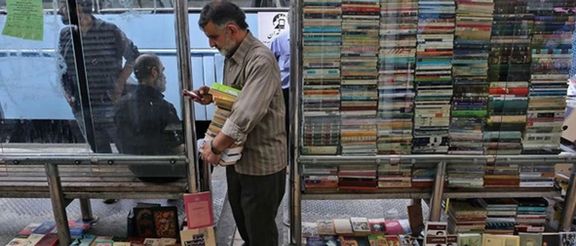
The Ministry of Culture in Iran has come under criticism for censoring a sentence indirectly critical of Russia in the translation of a psychology book.
The sentence in question, "Putin's bombing of Ukraine," was allegedly censored, shedding light on a wider discussion about regime influence on literary and scientific content.
Asadollah Amrayi, a famous translator and journalist, revealed the alarming development, stating that the ministry has demanded the removal of the sentence related to Ukraine's from the translated book.
Taking to the social platform X (formerly known as Twitter), Amrayi expressed his astonishment: "Can you believe that in a motivational psychology book, the Culture Ministry has demanded the removal of [such a sentence?]” The incident has sparked conversations on social media, with some interpreting the ministry’s actions as a reflection of a "Russophile" stance, hinting at a government bias towards Russia.
Interestingly, the media landscape in Iran presents a skewed view of Russia's invasion of Ukraine, often favoring Moscow's perspective. This episode has also given rise to comparisons with George Orwell's dystopian novel 1984, with some users likening the Ministry of Culture to the infamous Ministry of Truth. This fictional institution altered historical events to suit the regime's narrative.
Censorship of books in Iran has a long history, but it has intensified under the influence of the Islamic Republic. In a recent report, Foreign Policy highlighted the mounting apprehension and control within cultural domains over the past two years. Various artistic fields have been hampered by the conservative policies of President Ebrahim Raisi's government, leading to challenges for independent artists working within an atmosphere of fear and restraint.
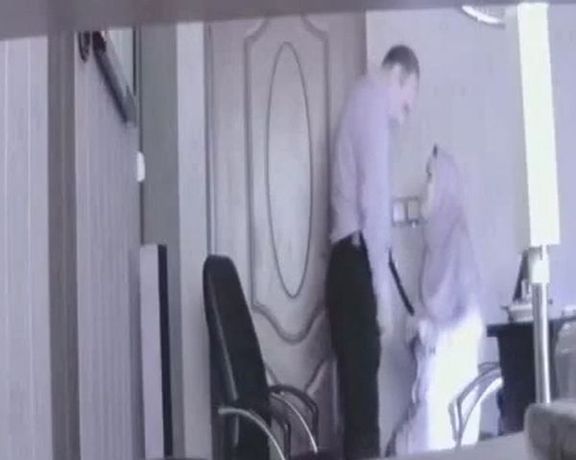
Amid hijab crackdown targeting women in Iran, videos showing Islamic regime officials engaging in illicit sexual relations circulate on social media.
In the latest incident, a video surfaced on a Telegram channel showing a sexual encounter purportedly involving Mohammad Masoudianfar, a high-ranking state broadcaster (IRIB) official. The video is said to have been recorded secretly in his office.
It has been reported that both individuals featured in the video are married and have children. Intriguingly, both figures are associated with the Basij forces. Additionally, Masoudianfar holds a senior role within the state Television department dedicated to promoting hijab.
Notably, the state-run broadcasting organization operates under the oversight of Supreme Leader Ali Khamenei.
In recent weeks, a Telegram channel named Radio Gilan, administered by Payman Behboudi, a journalist based in Germany, has released a series of videos that have ignited significant controversy within Persian social media circles.
The unfolding controversy initially gained attention with the release of a video allegedly depicting Reza Seqati, a director from Iran's Ministry of Culture, engaged in a sexual act with a young man. Subsequently, Seqati was dismissed from his position after the video of his explicit encounter was leaked online.
Iran's sharia-based penal code prescribes severe punishments for various forms of sexual acts. Penetrative same-sex relations between adult men can lead to the death penalty.
Furthermore, sexual acts categorized as Zena, involving married men and women, are subject to stoning and death penalties under the prevailing legal framework.

Iran's top Sunni cleric Mowlavi Abdolhamid has compared protests in Iran and Israel, noting that Prime Minister Benjamin Netanyahu did not kill any protesters.
Abdolhamid, who has emerged as an outspoken critic of the regime in the past year, made the remarks during his Friday prayer sermons, referring to large-scale protests underway in Israel since early 2023 in response to the ruling government's push for a wide-ranging judicial overhaul.
In Israel, 123 protesters were injured and about 700 people were arrested since January. In Iran, well over 500 protesters were killed by regime’s agents while the number of the injured – including those who lost eyesight – is so high that cannot be estimated. At least 22,000 were arrested, with seven executed and some on death row on trumped up charges.
Comparing how the Israeli government is handling the protests with what the Islamic Republic is doing, he said, "It's astonishing that in Israel, not even one person from the protesters and forces opposing the government has been killed. Israel kills Palestinians but not its own people. They differentiate between their own nation and others. But why isn't it the same here?"
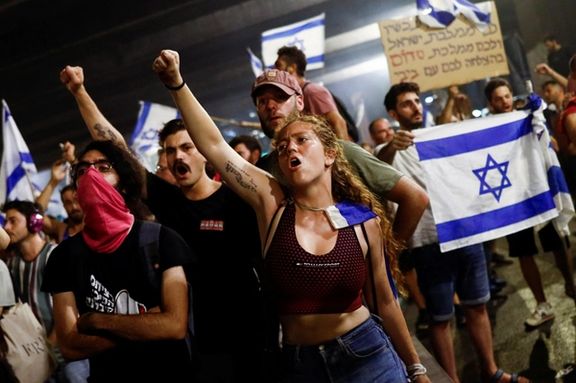
Abdolhamid said, "Everyone in Israel has revolted and protested that Netanyahu wants to lead the government towards dictatorship. Pilots and reserve army forces have resigned because they don't want to defend a dictatorship,” implicitly calling on Iranian military officials to break their silence in the face of injustices.
The cleric rebuked the authorities who continue to threaten people to discourage them from further demonstrations as the anniversary of anti-regime protests approaches in mid-September, and the regime has intensified its intimidation campaign. "Recently, one of the Basij commanders said that if there is another protest, we will suppress it. Suppressing the people is not the right approach. The Basij should listen to the people's grievances.People have problems; they are hungry; they are humiliated and are stuck in a deadlock.”
He condemned those officials who are not independent in their decisions and turn a blind eye to the country’s problems and corruption, emphasizing that there are no prospects for a better future for Iran. Referring to the inability of the government to deal with Iran's critical issues, he said, "Day by day, the country's crises deepen, and the nation is facing endless problems. Now, with the arrival of a new parliament and administration, are these problems supposed to be resolved," Abdolhamid said referring to parliamentary elections in March.
"If there is no bright prospect and the new parliament will only repeat the same old tactics, while people's vote would have no impact, it will be all futile," he added.
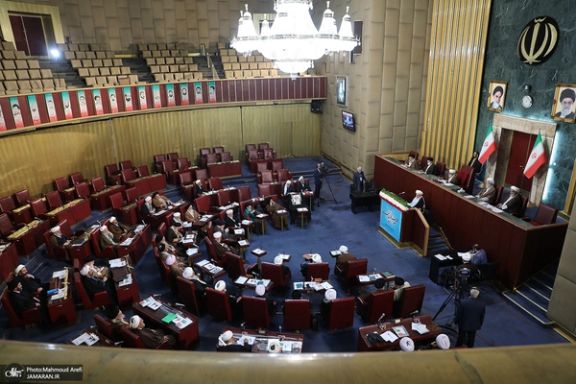
Implicitly alluding to Iran's leader Ali Khamenei, he emphasized the necessity for all individuals, regardless of their status, to be subject to accountability without being treated as untouchable "red lines." He labeled this issue as the regime's "greatest danger," condemning the reluctance of senior officials to heed the grievances of the people, especially those whose identities remain concealed from public discourse. Critically assessing the Assembly of Experts for Leadership—an authoritative body responsible for appointing the Supreme Leader—Abdolhamid asked, “What is the purpose of this council if its members cannot oversee the organizations and institutions under Khamenei’s control?”
The forthright Sunni leader remarked that unless there is a shift in perspectives and policies, coupled with substantial transformation that genuinely serves the people, the ongoing challenges will endure. He stressed that merely altering parliamentary representatives, the Assembly of Experts, or the presidency will not suffice to address these persistent issues.
Following his sermons, people in several Sunni majority cities in Sistan-Baluchestan, including the provincial capital Zahedan, poured onto streets and chanted slogans to demand the release of political prisoners. Residents have been protesting every Friday since last September when sucurity forces killed around 90 civilians during a Friday protest.

The Tehran Clothing Manufacturers and Retailers Association has forced clothing business owners to attend workshops to manufacture products based on Islamic rules.
Abdol-Qasem Shirazi, the association's spokesperson, said his group is committed to promote the mandatory hijab.
Shirazi stated, "At the association's dedicated training center, clothing business proprietors and suppliers are imparted with essential insights into the principles of modesty and hijab. These workshops serve as a platform for participants to gain a comprehensive understanding of these cultural values. Additionally, participants are honored with certificates of attendance, symbolizing their engagement in this important discourse."
He further threatened that through inspection campaigns backed by government agents, the association will continue to enforce adherence to mandatory hijab regulations.
“Instances of non-compliance are addressed decisively, with some non-conforming businesses facing temporary closures.”
In a related context, Iran's Cyber-Police (FATA) recently issued warnings to businesses such as women's fashion boutiques, surgery clinics, and gyms, cautioning them against sharing unveiled photos in their social media content.
The movement of defiance against compulsory hijab has gained momentum, especially following the tragic death of Mahsa Amini, a 22-year-old woman who received fatal injuries while in custody of the morality police for "improper hijab." Her case ignited nationwide protests, drawing attention to the ongoing discourse around hijab rules.
The government's response to these protests has included measures such as restricting the use of public transportation, access to government premises, and boarding flights for those deemed defiant. Additionally, certain establishments, including shops and shopping malls, have been temporarily shut down.